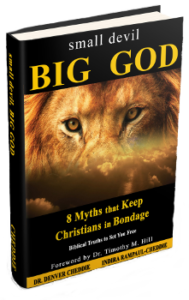Revelation 3:7
7 And to the angel of the church in Philadelphia write; These things saith he that is holy, he that is true, he that hath the key of David, he that openeth, and no man shutteth; and shutteth, and no man openeth;
The key of David (Rev. 3:7) is an Old Testament allusion to the absolute sovereignty of God (Isa. 22:22). To the godly church at Philadelphia, Jesus is portrayed as holding the key of David to open doors no one can close, and close doors no one can open. The Bible emphatically emphasizes the sovereignty of God. He has even ordained the wicked for the day of destruction (Prov. 16:4). But good things are stored up for the righteous (Rom. 8:28; Ps. 37:23). God’s sovereignty works for all people – positively for the righteous, negatively for the wicked. Those who trust Him are guaranteed divine guidance in their life. They are assured that God would strategically close the wrong doors and open the right ones. Of course we have a responsibility to knock (Matt. 7:7, 8), but we also must learn to pray “not my will, but thine be done” (Matt. 26:39).
DOWNLOAD FREE CHAPTERS FROM OUR NEW BOOKS
The Bible often portrays the righteous as those who trust in God, and the wicked as those who have no regard for Him. The wicked insist on having their own way at any cost. The children of Israel were adamant that they get meat instead of manna in the wilderness. God granted their request but sent with it leanness to their souls (Ps. 106:15). On the contrary the blessing of the Lord, which are in line with His perfect will, make rich and add no sorrow to it (Prov. 10:22). If we a hell-bent of having our own way, God will allow us to, but such is a recipe for disaster.
Those who are faithful to God and trust Him are guaranteed that His providence would work for them. They accept whichever doors God opens and closes. They have desires which they make known to God continually, but they always allow God to reserve the right to refuse any request that He in His foreknowledge knows is not best for them. May we learn to trust Him more and lean less to our own understanding.


